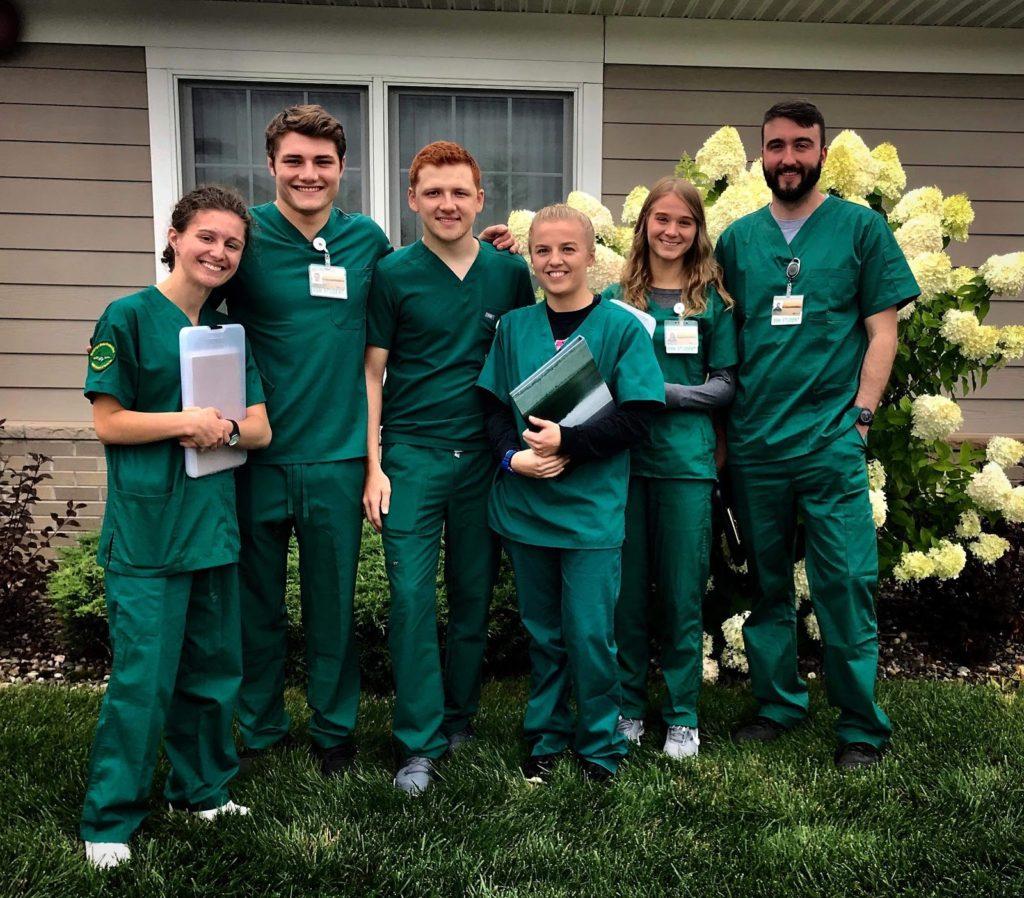The demand for nurses and healthcare workers grows exponentially as COVID-19 continues. The NMU nursing program now more than ever must cultivate excellent young nurses, however, as with most aspects of life, there are some changes afoot.
“A nursing program is half theory and half clinic,” said Associate Dean and Director of NMU’s School of Nursing, Kristi Robinia.
Robinia has been an instructor at NMU since 1995, and the associate dean for three years.
“I am excited to see the nursing students return,” Robinia said. “I miss their energy, ideas and enthusiasm … I am proud of our Wildcat nurses.”
Much like the rest of the campus, the biggest changes will be the use of PPE such as wearing masks, social distancing, and emphasis on handwashing throughout the semester. Some of the clinic sites will not be open to students such as long-term care settings and our instructors are being very creative in finding/offering alternative clinic experiences, Robinia said.
“In nursing education, it is impossible to maintain six feet of social distancing for certain activities,” Robinia said. “For example, our students need to practice how to take blood pressure or listen to heart and lung sounds… As in real life, it is impossible to have all team members treat a patient six feet apart from each other.”
To continue practices somewhat normally, students will undergo screenings before each class session. This is a new norm, especially in medicinal establishments. Preliminary screenings before entry can identify individuals with temperatures, a predominant symptom of COVID-19. If a student is running a temperature, they will likely be asked to go home and self-monitor.
“The decision was made to treat our lab and simulation center as ‘hospital environments’. Before entering our labs, students will be monitored for temperature and complete a COVID-19 symptom screening form,” Robinia said. “In these settings, nursing students will also be required to use both face shields and masks. Gloves and gowns will also be used as appropriate.”
She also clarified cleaning protocols have been upped, PPE supplies as well. Students will be closely monitored for symptoms throughout the program.
“Everyone knows the success of providing face-to-face instruction this semester will depend on the behavior of students, faculty, and staff. Stay put. Don’t gather in a crowd. Wear your mask and wash your hands,” Robinia said.
Senior nursing major Camille Burck worries that others may not take precautions seriously.
“I believe NMU has done everything they possibly can to keep people safe on campus. It’s just now in the hands of everyone returning to campus to abide by those rules,” Burck said.
The program specifically focuses on pediatrics this semester. This consists of two separate clinics for her. Due to the possibility of a shutdown, the program will alternate the two in case this happens so students still get that experience, said Burck.
Furthermore, Burck said she worries how this split will be executed. Proactively, on the other hand, this will still give students the chance to see both sides of the clinic in the event of another shutdown. If all goes smoothly though, she and others will essentially have a ‘normal’ experience.
“I am worried it’s going to cause an overload of work for students, professors and NTC staff who have to set up all these clinics if it is not the hospital … I also know that the first semester students are very affected by the regulations,” Burck said. “They cannot even go into nursing homes right now. That’s usually the type of clinical learning for that semester. I know that the whole curriculum for first semester clinics is completely different from any other.”


























